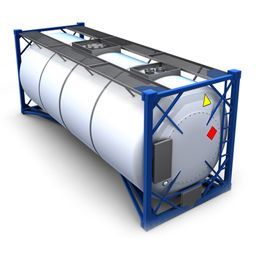How to Export Goods to Canada
The
economic and business setting in Canada has been solid and thriving than other
nations since mid-2016. Therefore, a strong labor market and positive output
growth are driving superior levels of Canadian business and consumer confidence
and supporting wage development.
The
country has steered through the international financial crisis better than
numerous international banks because of the stringent regulatory bank
environment. The country’s banking system is one of the soundest worldwide and
its educated workforce and resources make it a top option for business
investments. If you’re looking to export to Canada, here’s what you need to
know about shipping in flexibags.
Regulations in Canada
Deciphering
Canadian export regulations can be frustrating if you’re new to trading with
the nation. Nonetheless, you can combat exporting issues by working closely
with your local service office and finding partners who are experienced in
trading with Canada. This means ensuring your freight forwarder has documented
experience trading with the country.
Export Assistance
The best
thing about exporting to Canada is that you can find assistance from in-country
allies, including the chambers of commerce and trade missions.
Trade Missions
Trade
missions receive sponsorship from local and state trade offices. They make an
excellent way of networking with contacts, so you want to look into them.
This
resource is excellent to help combat issues. ITA personnel are professionals in
supporting U.S. businesses of all sizes, tailoring their services to resolve
your trade dilemmas as proficiently as possible. Should you find yourself amid
an unfair global trade situation, this valuable resource can help you comprehend
and solve your issues expeditiously.
Business Licensing Prerequisites
Professional
licensing in this country needs a considerable amount of rigorous examinations
and training. Furthermore, licenses and permits are issued at varying
government levels and businesses should make sure that all pertinent
requirements are met.
Export Requirements
When
exporting to this country, procedures and documentation are crucial. The most
significant document an exporter requires is the Customs Invoice or a typical
commercial invoice that comprises the necessary information. Other documents
you require to export bulk products in flexitanks for sale include:
Bill of Lading
Essentially,
this document comprises three items that need documentation for freight
delivery from one point to another. It includes the shipper’s information,
which features the company name, shipping address, point of contact, and
contact phone number. It includes the consignee information where the freight
delivery is taking place. Lastly, it comprises a description of the shipped
freight.
Proof of Delivery
This is
simply the recipient’s signature that signifies that the delivery of goods has
taken place. Most often, the bill of lading will have the signature
demonstrating proof of delivery. Other shippers need an electronic signature or
specific form for proof of delivery.
Customs Invoice
You can
obtain the customs invoice from the transport carrier you’re using. It’s worth
noting that your goods should meet a few criteria. To begin with, the goods should
be subject to sales tax and other duties. Also, it should be a commercial shipment
valued at more than 2500 CAD.
Bulk Shipping
Exporting
materials and products in bulk quantities help decrease expenses. Just make
sure you can communicate with the shipping provider, particularly concerning
how the process works.
Liquids
Liquid
bulk products denote any material that flows freely, typically loaded and
unloaded from flexibags. Unlike solid cargo, this kind of bulk is shipped in
tanks purposely designed to accommodate liquid materials. These kinds of goods
include food in liquid form, for instance, vegetable oil.
You can
ship bulk liquids in uniquely designed flexitanks for sale. These kinds of
containers or vessels are responsible for shipping or transporting the various
kinds of bulk liquid under strict safety measures.
You can
transport various liquids such as fruit juices, cooking oils, and dairy
products, for instance, milk. Just make
sure you understand the banned items for shipping.
Solid Goods
Dry or
solid bulk liquids describe materials that you can dispatch in the factory.
This kind of cargo is varied because they include grains, for instance, wheat,
chemicals, for instance, fertilizers, and other elements such as salt. With the
right carrier, the transportation of some of these items can take place in
specialized flexibags for sale.
Factors that Impact Bulk Shipping
Costs
Various
factors determine bulk shipping costs, including:
Package Weight and Dimensions
These
impact the cost the most. Shipping companies need the most precise weight and
dimensions when calculating the cost.
Once you drop an item, expect it to be measured and weighed.
Subsequently, you’ll be informed about the price and details when offering bulkshipping in flexitanks for sale.
Freight Classification
Besides
its weight and dimensions, the shipping company examines whether your products
will be vulnerable to damage, particularly during shipping and handling in flexibags.
Products that need careful handling will fall under the classification of a
higher shipping category, leading to higher shipping rates.
Benefits of Doing Business in
Canada
Lower Tax Rates
In a bid
to promote economic growth and draw global business, Canada decreased its tax
rate gradually over the years.
Trade Pacts
If
you’re looking to expand to Canada, you’ll benefit from the extensive trade
network, which offers benefits to Canadian organizations with preferred access
to diverse and global markets.
Intellectual Property
Another
major benefit of trading with Canada is their dedication to innovation, which
is evident in the country’s endeavors to enhance its intellectual property
regime by decreasing administrative burdens and streamlining Canadian business
procedures.
If you’re looking to offer bulk solutions in Canada using flexibags, ensure you familiarize yourself with the country’s regulations and policies if you want to succeed.




Comments
Post a Comment